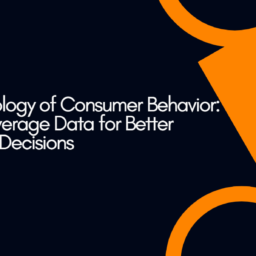Humor is a powerful tool in marketing that can capture attention, make brands memorable, and foster emotional connections with audiences. However, its effectiveness depends on timing, context, and audience. This blog explores the benefits of humor in marketing, when to use it, and how to strike the right balance to achieve your objectives.
Why Humor Works in Marketing
- Grabs Attention
- Humor cuts through the noise in crowded markets, making your message stand out.
- Example: Old Spice’s quirky ads revitalized the brand by creating memorable moments that drew viewers in.
- Builds Emotional Connections
- Laughter creates a positive emotional response, making people more likely to remember and associate your brand with good feelings.
- Boosts Shareability
- Funny content is more likely to go viral, increasing your reach organically.
- Example: Wendy’s humorous social media roasts have earned widespread attention and engagement.
- Simplifies Complex Messages
- Humor can break down complicated ideas, making them more accessible and enjoyable for audiences.
- Humanizes Brands
- A funny tone can make a brand feel approachable and relatable, helping foster trust and loyalty.
When to Use Humor in Marketing
- Your Audience Appreciates It
- Humor should align with your target demographic’s tastes and cultural context. Research what resonates with your audience to avoid misunderstandings.
- The Brand Voice Allows It
- Brands with a casual, fun, or quirky personality are more suited for humor. For example, a tech startup might use memes, while a luxury watch brand might opt for a more refined tone.
- To Increase Engagement
- If your goal is to spark interaction, such as likes, shares, and comments, humor can encourage participation.
- In Lighthearted Contexts
- Use humor for campaigns like product launches, holiday promotions, or social media content where a relaxed tone is appropriate.
- To Diffuse Negative Situations
- Humor can help address complaints or errors with grace, provided it’s done sensitively.
When Not to Use Humor
- Sensitive Topics
- Avoid humor when discussing serious issues like health crises, personal loss, or social injustices, as it can come across as tone-deaf.
- In Highly Professional Contexts
- Humor may undermine credibility in industries like finance or law, where trust and professionalism are paramount.
- If It Conflicts with the Brand
- A brand with a serious, authoritative image might risk confusing its audience or damaging its reputation by using humor.
- When Uncertain of Cultural Sensitivities
- Jokes that don’t translate well across cultures can alienate or offend international audiences.
Tips for Using Humor Effectively
- Know Your Audience
- Research your audience’s sense of humor to ensure your jokes land as intended.
- Stay On-Brand
- Ensure humor aligns with your brand’s personality and values.
- Keep It Relevant
- Tie jokes to the product, service, or context to maintain focus on your message.
- Use Visual and Situational Humor
- Videos, memes, and quirky situations can convey humor effectively without relying solely on words.
- Test Before Launching
- Run campaigns by focus groups or team members to gauge reactions and avoid missteps.
Examples of Successful Humor in Marketing
- Dollar Shave Club
- Their debut video, filled with witty one-liners, humorously addressed common shaving frustrations, making the brand an instant hit.
- Geico
- The “Hump Day” camel ad brought laughs while reinforcing the brand’s identity as quirky and memorable.
- KFC
- In response to a chicken shortage in the UK, KFC rearranged its logo to spell “FCK” on an empty bucket, humorously apologizing and turning a crisis into a PR win.
- Aviation Gin
- Known for its cheeky campaigns, Aviation Gin cleverly responded to cultural moments, like parodying Peloton’s controversial ad with a funny twist.
Potential Risks of Using Humor
- Alienating Audiences
- Humor that’s too niche or controversial can exclude or upset segments of your audience.
- Overshadowing the Message
- A joke might be memorable, but if it overshadows the product or brand, the campaign fails its purpose.
- Misinterpretation
- Ambiguity or poor timing can lead to misinterpretation, resulting in backlash.
- Short-Lived Impact
- Trends in humor can be fleeting, so campaigns may quickly lose relevance.
Conclusion
Humor in marketing is a powerful tool when used thoughtfully and appropriately. It can captivate audiences, foster positive associations, and encourage brand loyalty. However, the key to success lies in knowing your audience, aligning with your brand voice, and understanding the context. By balancing humor with strategy, brands can deliver campaigns that entertain, engage, and drive results.




